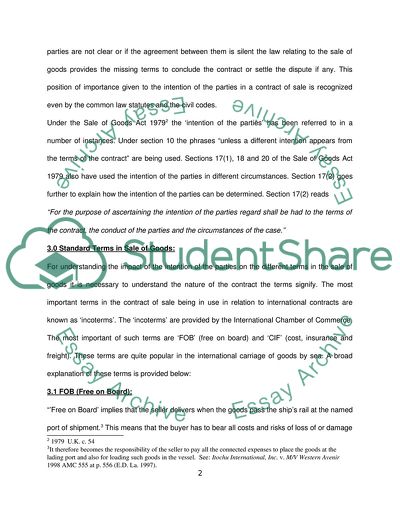Cite this document
(“International Sales Contracts Essay Example | Topics and Well Written Essays - 3500 words”, n.d.)
International Sales Contracts Essay Example | Topics and Well Written Essays - 3500 words. Retrieved from https://studentshare.org/law/1541481-please-see-in-attached
International Sales Contracts Essay Example | Topics and Well Written Essays - 3500 words. Retrieved from https://studentshare.org/law/1541481-please-see-in-attached
(International Sales Contracts Essay Example | Topics and Well Written Essays - 3500 Words)
International Sales Contracts Essay Example | Topics and Well Written Essays - 3500 Words. https://studentshare.org/law/1541481-please-see-in-attached.
International Sales Contracts Essay Example | Topics and Well Written Essays - 3500 Words. https://studentshare.org/law/1541481-please-see-in-attached.
“International Sales Contracts Essay Example | Topics and Well Written Essays - 3500 Words”, n.d. https://studentshare.org/law/1541481-please-see-in-attached.


